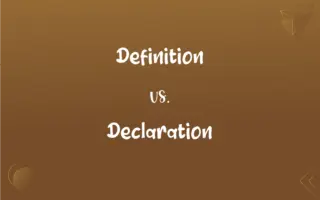Flog vs. Log: What's the Difference?

Flog and Log Definitions
Flog
To beat severely with a whip or rod.
Log
A usually large section of a trunk or limb of a fallen or felled tree.
Flog
(Informal) To publicize aggressively
Flogging a new book.
Log
A long thick section of trimmed, unhewn timber.
Flog
(transitive) To whip or scourge as punishment.
ADVERTISEMENT
Log
A device trailed from a ship to determine its speed through the water.
Flog
(transitive) To use something to extreme; to abuse.
Log
A record of a ship's speed, its progress, and any shipboard events of navigational importance.
Flog
To sell.
Log
The book in which this record is kept.
ADVERTISEMENT
Flog
To steal something.
Log
A record of a vehicle's performance, as the flight record of an aircraft.
Flog
To defeat easily or convincingly.
Log
A record, as of the performance of a machine or the progress of an undertaking
A computer log.
A trip log.
Flog
To overexploit (land), as by overgrazing, overstocking, etc.
Log
A logarithm.
Flog
(theater) To beat away charcoal dust etc. using a flogger.
Log
To cut down, trim, and haul the timber of (a piece of land).
Flog
A contemptible, often arrogant person; a wanker.
Log
To cut (timber) into unhewn sections.
Flog
(internet slang) A weblog designed to look authentic, but actually developed as part of a commercial marketing strategy to promote some product or service.
Log
To enter in a record, as of a ship or an aircraft.
Flog
To beat or strike with a rod or whip; to whip; to lash; to chastise with repeated blows.
Log
To travel (a specified distance, time, or speed)
Logged 30,000 air miles in April.
Flog
Beat severely with a whip or rod;
The teacher often flogged the students
The children were severely trounced
Log
To spend or accumulate (time)
Had logged 25 years with the company.
Flog
Beat with a cane
Log
To cut down, trim, and haul timber.
Log
The trunk of a dead tree, cleared of branches.
They walked across the stream on a fallen log.
Log
Any bulky piece as cut from the above, used as timber, fuel etc.
Log
Anything shaped like a log; a cylinder.
Log
(nautical) A floating device, usually of wood, used in navigation to estimate the speed of a vessel through water.
Log
(figuratively) A blockhead; a very stupid person.
Log
A heavy longboard.
Log
(figuratively) A rolled cake with filling.
Log
(mining) A weight or block near the free end of a hoisting rope to prevent it from being drawn through the sheave.
Log
(vulgar) A piece of feces.
Log
(vulgar) A penis.
Log
A logbook, or journal of a vessel's (or aircraft's) progress.
Log
A chronological record of actions, performances, computer/network usage, etc.
Log
(computer science) Specifically, an append-only sequence of records written to file.
Log
A Hebrew unit of liquid volume (about 3{{nbsp}}liter).
Log
Synonym of logarithm. Category:en:Functions
To multiply two numbers, add their logs.
Log
(sciences) A difference of one in the logarithm, usually in base 10; an order of magnitude.
Log
(transitive) To cut trees into logs.
Log
(transitive) To cut down (trees).
Log
(intransitive) To cut down trees in an area, harvesting and transporting the logs as wood.
Log
(transitive) To make, to add an entry (or more) in a log or logbook.
To log the miles travelled by a ship
Log
(transitive) To travel (a distance) as shown in a logbook.
Log
(transitive) To travel at a specified speed, as ascertained by a chip log.
Log
A Hebrew measure of liquids, containing 2.37 gills.
Log
A bulky piece of wood which has not been shaped by hewing or sawing.
Log
An apparatus for measuring the rate of a ship's motion through the water.
Log
The record of the rate of speed of a ship or airplane, and of the course of its progress for the duration of a voyage; also, the full nautical record of a ship's cruise or voyage; a log slate; a log book.
Log
A record and tabulated statement of the person(s) operating, operations performed, resources consumed, and the work done by any machine, device, or system.
Log
A weight or block near the free end of a hoisting rope to prevent it from being drawn through the sheave.
Log
A record of activities performed within a program, or changes in a database or file on a computer, and typically kept as a file in the computer.
Log
To enter in a ship's log book; as, to log the miles run.
Log
To record any event in a logbook, especially an event relating to the operation of a machine or device.
Log
To engage in the business of cutting or transporting logs for timber; to get out logs.
Log
To move to and fro; to rock.
Log
A segment of the trunk of a tree when stripped of branches
Log
Large log at the back of a hearth fire
Log
The exponent required to produce a given number
Log
A written record of messages sent or received;
They kept a log of all transmission by the radio station
An email log
Log
A written record of events on a voyage (of a ship or plane)
Log
Measuring instrument that consists of a float that trails from a ship by a knotted line in order to measure the ship's speed through the water
Log
Enter into a log, as on ships and planes
Log
Cut lumber, as in woods and forests






































































